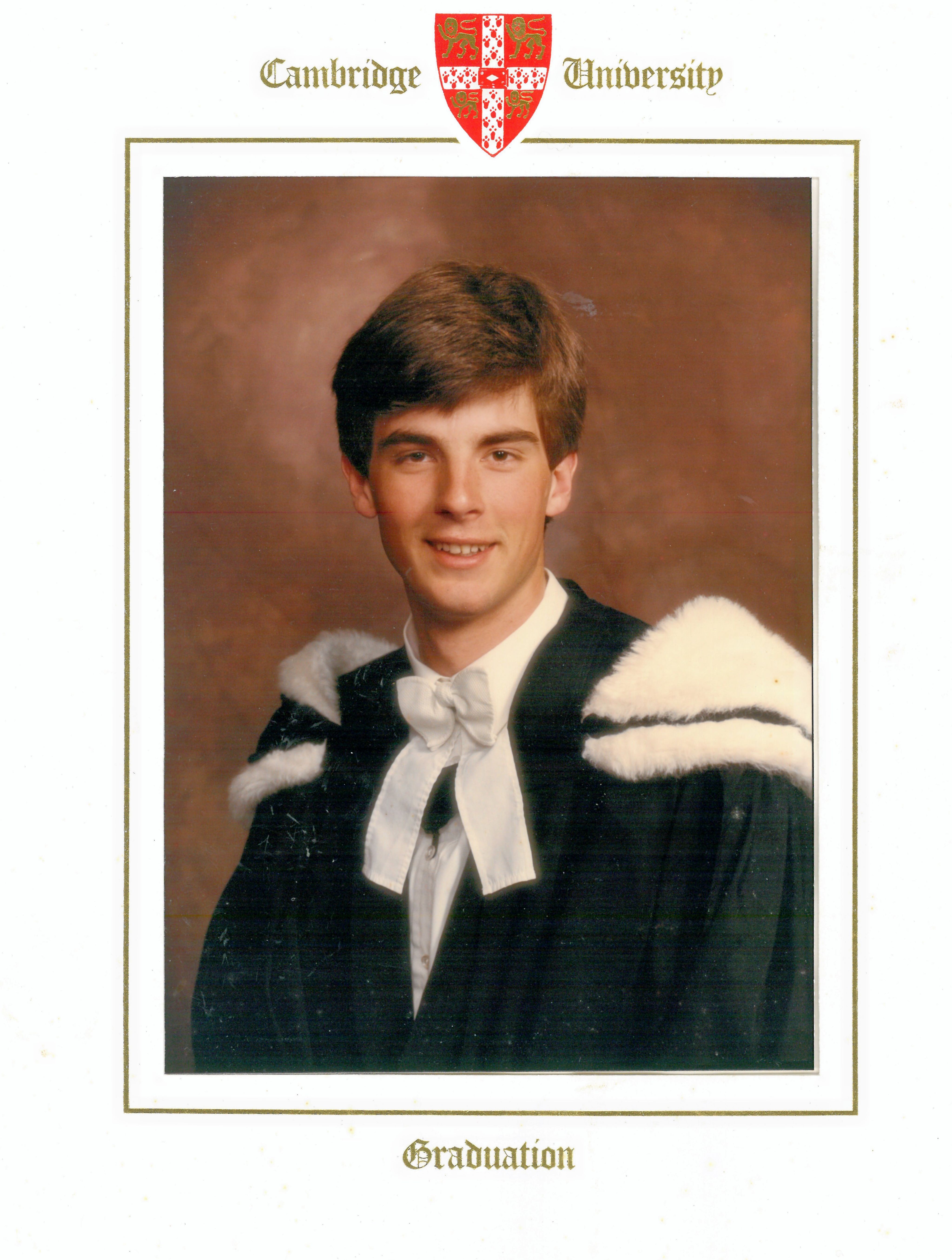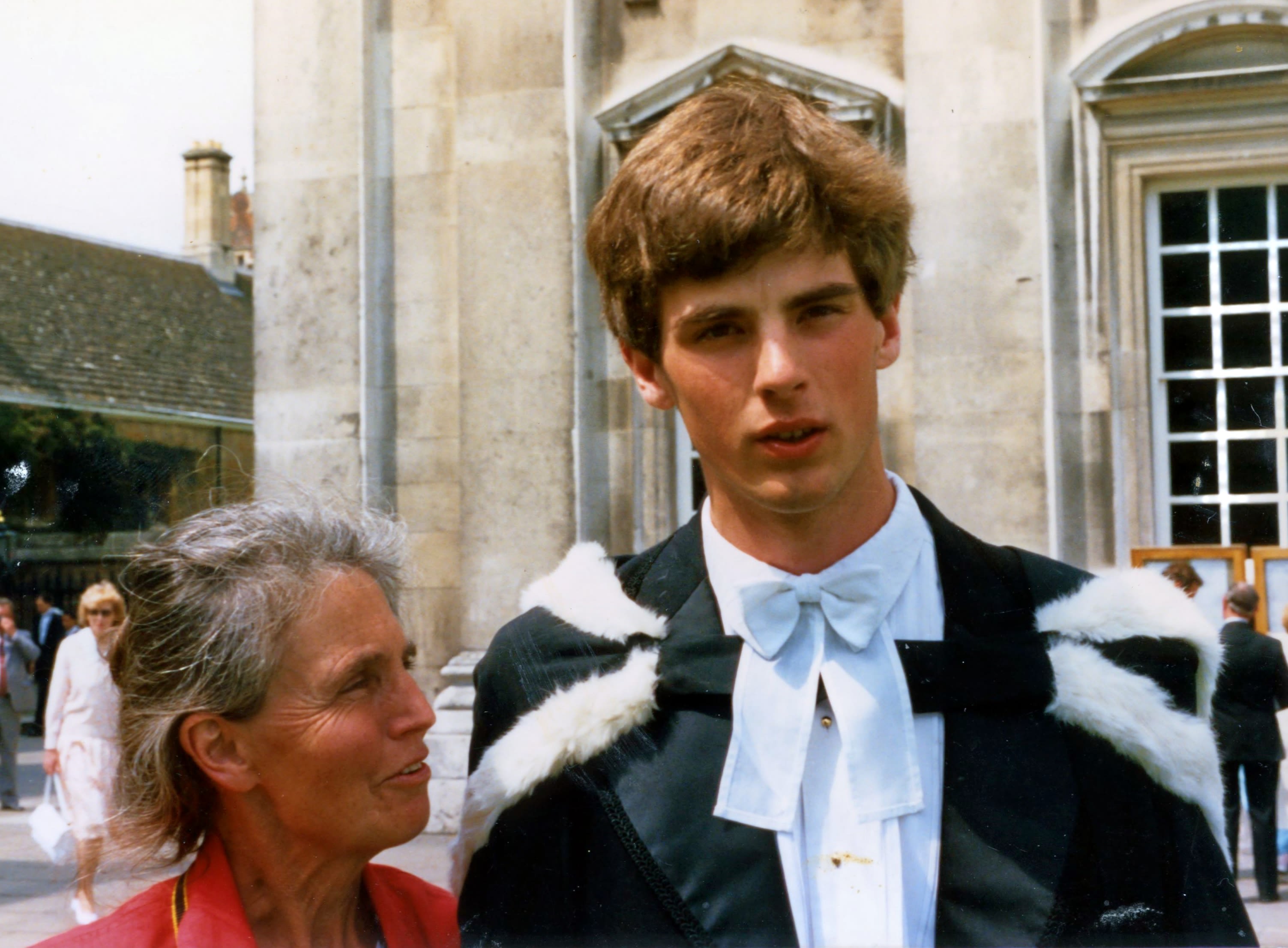Innovation and entrepreneurship
The benefits of volunteering in business
Richard Lucas (Pembroke 1985)
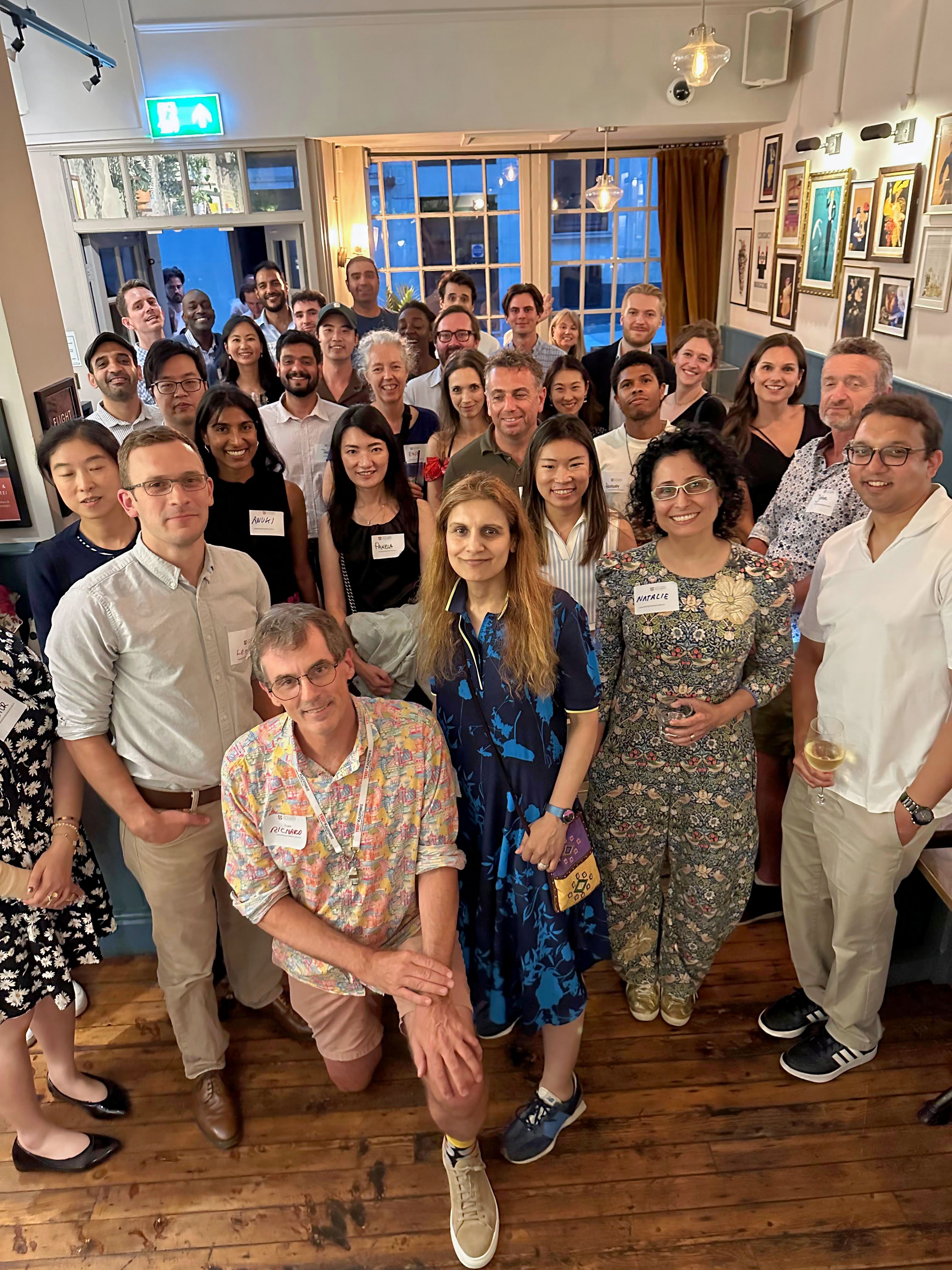
Are entrepreneurs born or made? In the case of Richard Lucas (Pembroke 1985), it’s a complex tale of...both.
From a knack for spotting business opportunities as a schoolboy to being in the right place when the Iron Curtain came down, the founder and lead of CAMentrepreneurs shares what shaped his adventures in business.
Launched in 2016, CAMentrepreneurs brings together like-minded individuals who want to support enterprise, whether as entrepreneurs, investors, students or service providers, focusing their efforts on starting, growing, and investing in outstanding businesses. With 2,300+ alumni and industry members, 500+ start-ups in the network, and over 15 chapters established around the world — plus its own social media platform and mentoring service — CAMentrepreneurs provides a valuable structure that allows alumni and students to share their experiences, knowledge, and networks.
It’s the brainchild of alumnus Richard Lucas, who is energised about changing the way that schools and universities interact with their alumni concerning the support of entrepreneurship.
Richard has invested in or co-founded 34 different companies. An angel investor — an individual who provides capital to start-ups or small businesses, usually in exchange for ownership equity — before it had a name, Richard co-hosts the 'Entrepreneurship and Leadership' podcast on the New Books Network, and for 15 years was active in the world of TED and TEDx, sharing insights from his experiences.
Recently, Richard filled us in on the academic, personal, and professional journey that led to a passion for volunteering in entrepreneurship.
One person’s obstacle is another’s opportunity
“I grew up in Oxford, where my dad was a philosophy don at Merton College. I went to New College Choir School in Oxford and then Winchester College, which is one of the old public schools. So, the idea of an Oxbridge future was never absent.
I already had several small business ventures at the age of nine or ten. Most of the boys at New College were boarders and they weren't allowed off the premises. There wasn't a school sweet shop, so I bought sweets in nearby shops, took them to school in my satchel, and sold them with a 100 per cent margin. When the entire school seemed to be going around with lollipop sticks sticking out of their mouths, the school banned it. However, this venture gave me the rather misleading idea that business was extremely easy and profitable: I’d invest 10p in the morning and have 20p by the end of the day. And doubling your money every day is quite remarkable.”
But it wasn’t a straightforward road into academia, and like many entrepreneurs, Richard had a less-than-linear mindset.
I was rather arrogant and assumed that I knew everything... until I discovered I didn't.
“I applied to Oxford when I was 17 but didn’t get in. I then decided I didn't want to stay on in school after A-level, so I got a job and did what would have been called ‘seventh term post-A-level entry’ to Cambridge later, while I was working for Westland Helicopters. That was the deal I made with my parents: I would take the exams provided I didn't have to stay in school. I spent around eight months working in different departments at Westland and then hitchhiked to Turkey and back, before arriving at Pembroke in the autumn of 1985.
I was always interested in business and economics, so it was very natural for me to do undergraduate economics — although I expected it to be more about business than it was. I was also very interested in human geography and why people live where they do. Why are rich countries rich? Why do some countries go from powerful to weak? Business studies or accounting would have been useful too, but at no stage in my life have I wanted to sign up for an accountancy course! I was rather arrogant and assumed that I knew everything... until I discovered I didn't.”
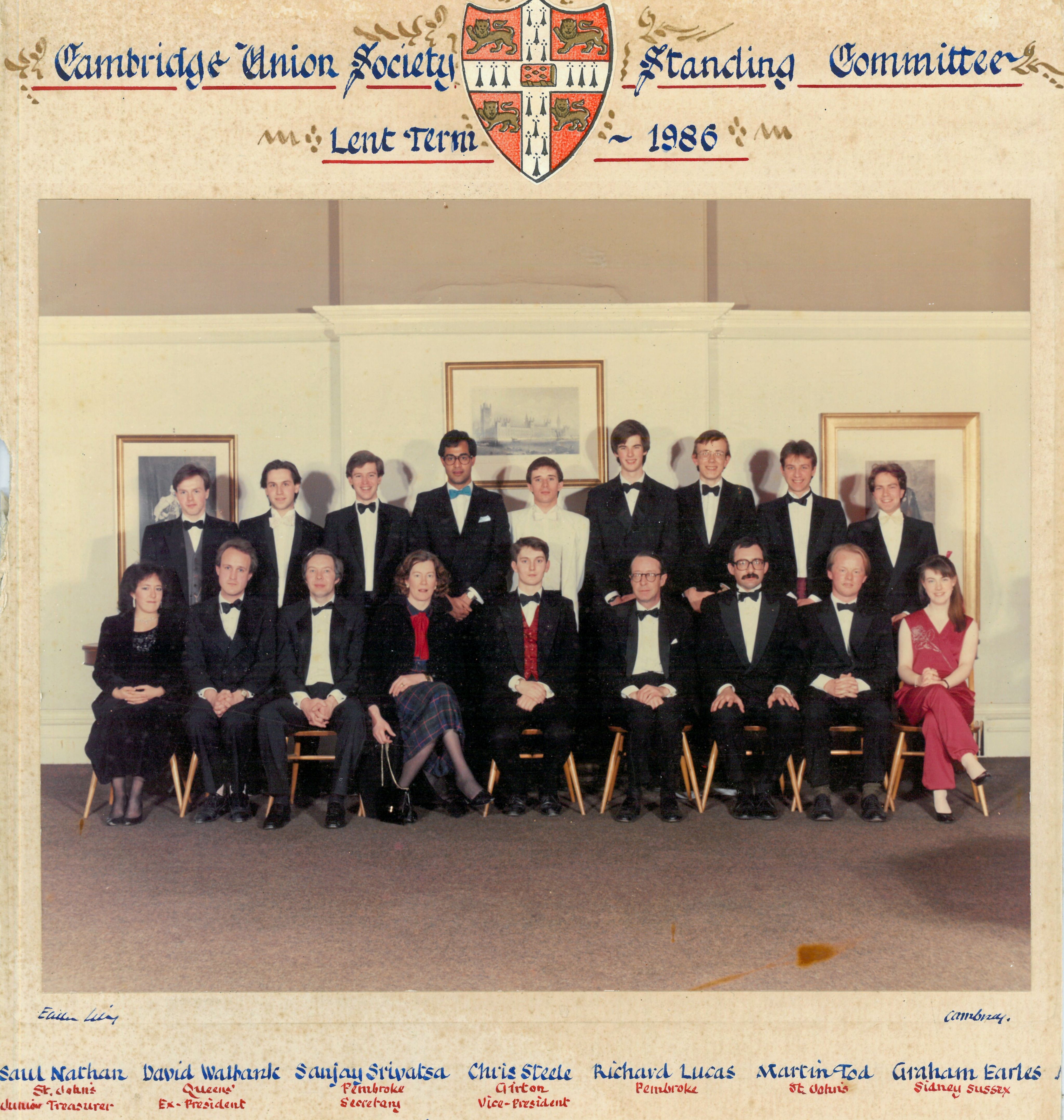
Beyond the classroom, more business opportunities
“I got active in the Cambridge Union debating society and won three elections. The experience of knocking on people's doors and persuading them to vote for me — it wasn't exactly business, but it taught me ‘salesy’ techniques that turned out to be useful. I also had a business buying bicycles from people when they graduated, paying someone to recondition them over the summer holidays, and then selling them back to freshers at the beginning of the autumn term.
I was good at business, but I didn't have any experience of scaling things and putting a team together. So, naturally, I overestimated my business skills! That’s one of the reasons I do the CAMentrepreneurs alumni group and invite students to our gatherings. It’s incredibly valuable to meet someone who was in your shoes 10, 20, 30, 40 years ago and gain from their hard-won experience.”
Cambridge Union Society Standing Committee, 1986
Cambridge Union Society Standing Committee, 1986
Improvising, instinct, and learning from mistakes
Back in the 1980s, there were no Cambridge University Entrepreneurs, Judge Business School, or the internet. The start-up community didn't exist. Entrepreneurship as a concept or a practice simply wasn't part of the fabric of student life. So how did Cambridge influence Richard’s trajectory?
“I learned to be comfortable with not being the smartest person in the room. Cambridge gave me self-belief and taught me to think and to be ready to change my mind. After Cambridge, I set up a rather misconceived business in Oxford: I thought I could sell kits for university students who were living away from home for the first time. I assumed that everyone was like me and wouldn't enjoy shopping. I was solving a problem that didn't exist. My business didn’t so much fail as never take off.”
Richard eventually landed a role in a Cambridge consulting company from 1989-91, where his student dissertation on black markets in communist economies suddenly made him the overnight default expert on Eastern Europe.
“There I was in Poland and Hungary — where I discovered a) that I didn't want to be a consultant; and b) a tremendous sense of opportunity because so much was changing in Eastern Europe. I somehow got a job in a business school in Krakow teaching ‘how to start a business’ courses despite never having taught at a business school or set up a successful business! I was in my early twenties, teaching through an interpreter. Within a few weeks, I went into business with one of my students who kept coming up to me after classes and asking for help. I ended up agreeing to work for free in return for shares and then invested a small amount of money. That was how I stumbled into the early 1990s Polish entrepreneurship scene.”
I learned to be comfortable with not being the smartest person in the room. Cambridge gave me self-belief and taught me to think and to be ready to change my mind.
Pre-internet, with no advice, no clear job role and just notes on the back of an envelope to go by, Richard was still feeling his way.
“By 1993 I was running a business I’d invested in and this evolved into being the full-time managing director of a barcode systems business, which became the market leader in Poland. I didn't have the technical knowledge, but I hired people who did. To this day, if a non-technical person is trying to get a start-up going, I always say to look for a technical co-founder because you're very vulnerable otherwise.”
The founding of CAMentrepreneurs
“When I first moved to Poland, one of my consulting projects was to introduce entrepreneurship education into Polish schools; if Poland was moving from communism to the market economy, it seemed like a good idea to start early. I was also driven to make starting in business easier for others than it had been for me.
I co-invested with people from the Cambridge ecosystems, notably Peter Cowley, a fellow of the Judge Business School and chairman of the Cambridge Angels. I then suggested that CAM, the alumni magazine do a piece about entrepreneurship, to which the magazine responded: ‘Entrepreneurship isn't of interest to our alumni; it's too specialised.’ I thought, ‘If it's such a minority interest, maybe there's a need for a dedicated entrepreneurship group’. I talked to Peter, who's a well-known figure among Cambridge alumni and the entrepreneurship ecosystem, and he was ready to lend his name to help start it.”
It gained traction quickly. Richard approached Edinburgh’s Cambridge Society, where he was due to give a speech, and pitched the idea of an entrepreneurship event for their local members; it turned out that most of the attendees had never been to an alumni event before.
“That was thought-provoking: there was a demographic of alumni, of which I was one, who weren’t engaging with the alumni network. At this point, alumni events were more tailored to professions and often looked like black-tie dinners. My events were different. After the success of the first one, it was blindingly obvious that we were missing a huge opportunity to build a network.”
With no full-time employees and no budget, CAMentrepreneurs takes a steady commitment and effort from Richard and his small, dedicated team of local leaders, with organisational support from local alumni societies and the Alumni Relations office.
"But we’re not ‘Cambridge only’, which I think is vastly important in terms of networking and sharing a knowledge base."
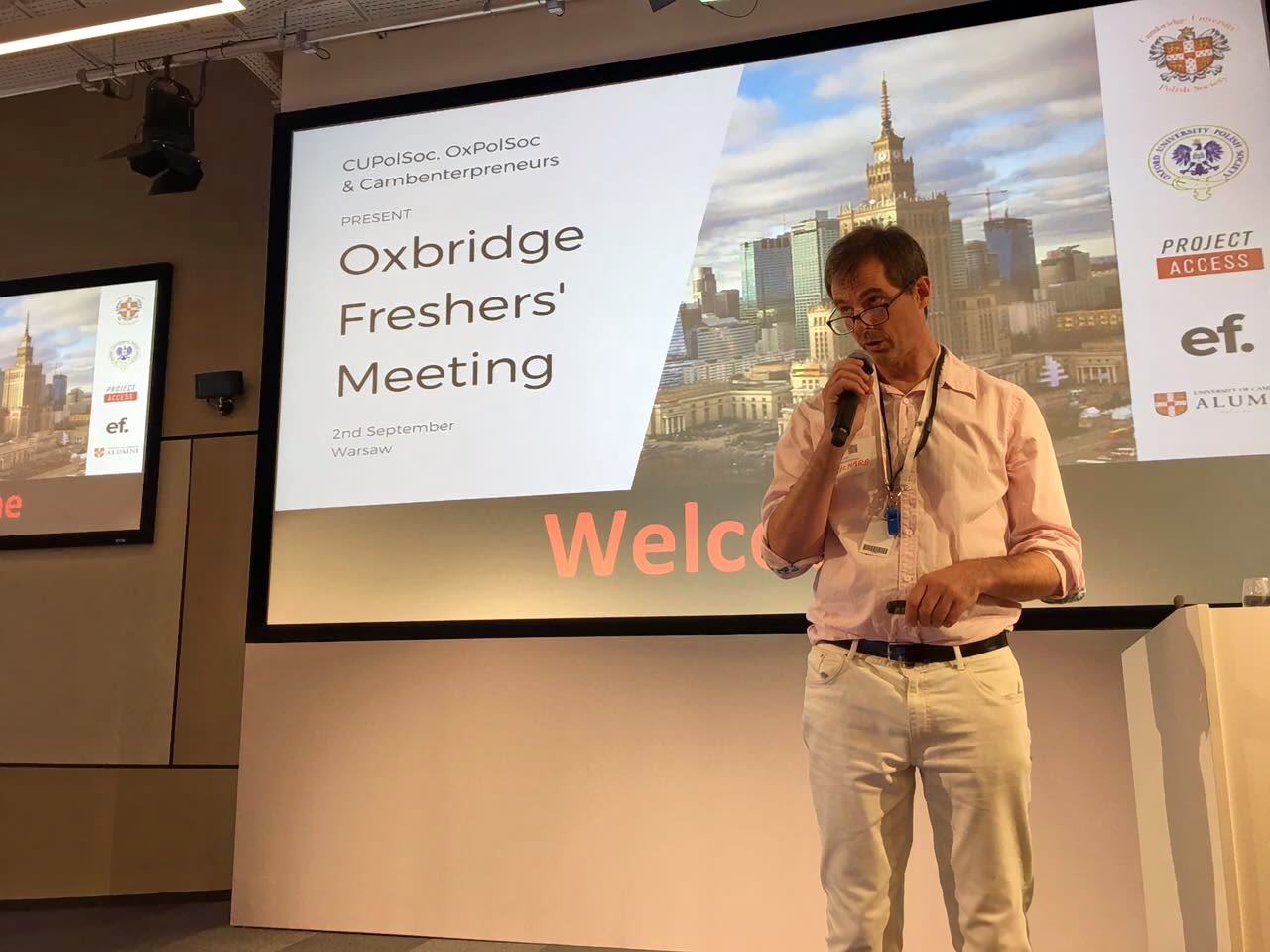
Richard at a CAMentrepreneurs gathering in Edinburgh
Richard at a CAMentrepreneurs gathering in Edinburgh
Richard sits on a panel for a CAMentrepreneurs event in Dubai
Richard sits on a panel for a CAMentrepreneurs event in Dubai
CAMentrepreneurs meet in London
CAMentrepreneurs meet in London
Impact: personal and professional, now and tomorrow
It’s indisputably positive for entrepreneurs to volunteer their time to help those who aren't as far along the journey. The impact on both current students and the entrepreneurship community is great news for local and regional economies alike. Being associated with CAMentrepreneurs can help members get taken more seriously and make good connections, leveraging the power of the Cambridge reputation and brand. Is there personal resonance for Richard?
“I get involved in things that were lacking in my own life. Another area of volunteering I do is fighting social isolation, and I think that has to do with the isolation of going to boarding school and living in a village during the school holidays. I see the issues that bothered me when I was young and want to address them.
I also think there are tremendous benefits to volunteering in terms of skills development, network development, and confidence building — everything I could have used at the start of my journey. It’s the catch-22: how do you get a job without experience and how do you get experience without a job? Volunteering can be the solution. It's also fun! You meet interesting people. I tell people who come to our events: if I go to a normal party most people think I'm weird. At our events, I feel briefly normal. It sounds like I'm joking but it's usually true!”
We have so much to give; we just need the opportunities. I’m determined to find ways to make that happen.
What's next for CAMentrepreneurs? There are cities around the world that are ripe for new chapters, and with extra administrative support the network could expand even further. Richard also sees a big opportunity to develop pathways for entrepreneurial alumni to re-engage with the University. As he puts it:
“For someone like me with experience, who’s built a few businesses, coming back for a 20th- or 30th-anniversary dinner — we want to engage. We're ready to give a talk, judge an entrepreneurship competition, and do some mentoring. We have so much to give; we just need the opportunities. I’m determined to find ways to make that happen.”
Are you a budding entrepreneur or a seasoned businessperson with experience to share?
Get involved with CAMentrepreneurs by completing this form. You can also contact Richard directly via email or via Richard's LinkedIn profile.

